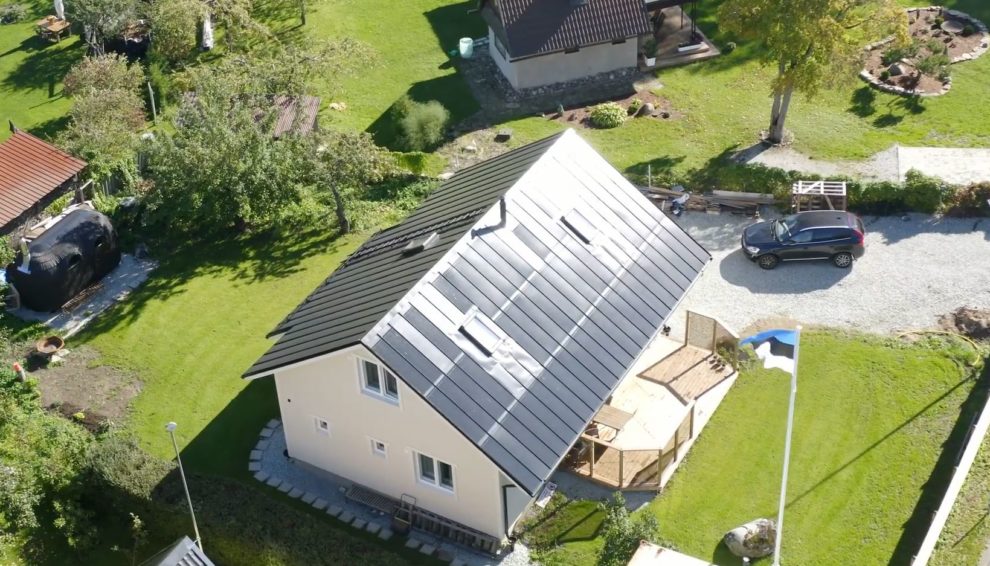
30.10.2018

When Andri Jagomägi started planning for his house five years ago, he wanted to convert sunlight into power without ruining the look of the house with separate solar panels. It turned out that roofing materials that would be able to produce electricity did not exist. Thus, he got an idea.
Andri, who has worked in the Department of Materials of the Tallinn University of Technology (TalTech), spent a couple of years on researching this topic and trying out materials. Roughly three years ago, Roofit Solar Energy was born. In 2017, the company installed its first roof that can produce electricity. Right now, there are five houses in Estonia that have a roof like this.
When speaking of solar panels, Estonians tend to ask if there is any point in installing these in our climate. Andri smirks and says that we have as much sun as Northern France – a lot more than people usually think. “When you start measuring it, then the numbers don’t lie. Our problem is actually that the sun is not particularly consistent throughout the year. There is a lot of sun in the summer and not much of it at all in wintertime, but the consumption of electricity peaks in the opposite way. You certainly couldn’t live on solar power only, but fortunately we are connected to the Northern European grid and we could use renewable energy from others. If we were to give up oil shale, we could definitely get by,” says Andri.
He adds, “Producing power from sunlight is roughly 10 times more environment-friendly because the entire ecological footprint of the solar panel comes from its manufacturing and it produces no pollution during its use. The panels have a very long service life because they contain no moving parts. No other way of producing energy stays serviceable for this long.”
Andri concludes that everybody wins from this. “The customer gets their roof and smaller energy bills for decades to come, but the most important beneficiary is nature itself, since less fossil fuels will be used.”
Webpage: Roofit Solar
Photo: Roofit Solar
Energy is central to nearly every major challenge and opportunity the world faces today. Be it for jobs, security, climate change, food production or increasing incomes, access to energy for all is essential. Working towards this goal is especially important as it interlinks with other Sustainable Development Goals. Focusing on universal access to energy, increased energy efficiency and the increased use of renewable energy through new economic and job opportunities is crucial to creating more sustainable and inclusive communities and resilience to environmental issues like climate change.
At the current time, there are approximately 3 billion people who lack access to clean-cooking solutions and are exposed to dangerous levels of air pollution. Additionally, slightly less than 1 billion people are functioning without electricity and 50% of them are found in Sub-Saharan Africa alone. Fortunately, progress has been made in the past decade regarding the use of renewable electricity from water, solar and wind power and the ratio of energy used per unit of GDP is also declining.
However, the challenge is far from being solved and there needs to be more access to clean fuel and technology and more progress needs to be made regarding integrating renewable energy into end-use applications in buildings, transport and industry. Public and private investments in energy also need to be increased and there needs to be more focus on regulatory frameworks and innovative business models to transform the world’s energy systems.
The Sustainable Development Goals are the blueprint to achieve a better and more sustainable future for all.
Read more about SDG 7 – Clean Energy
This publication has been produced with the financial support from the Nordic Council of Ministers. The content of this publication is the sole responsibility of the coordinators of this project and do not necessarily reflect the views or policies of the Nordic Council of Ministers.
Kommentaarid